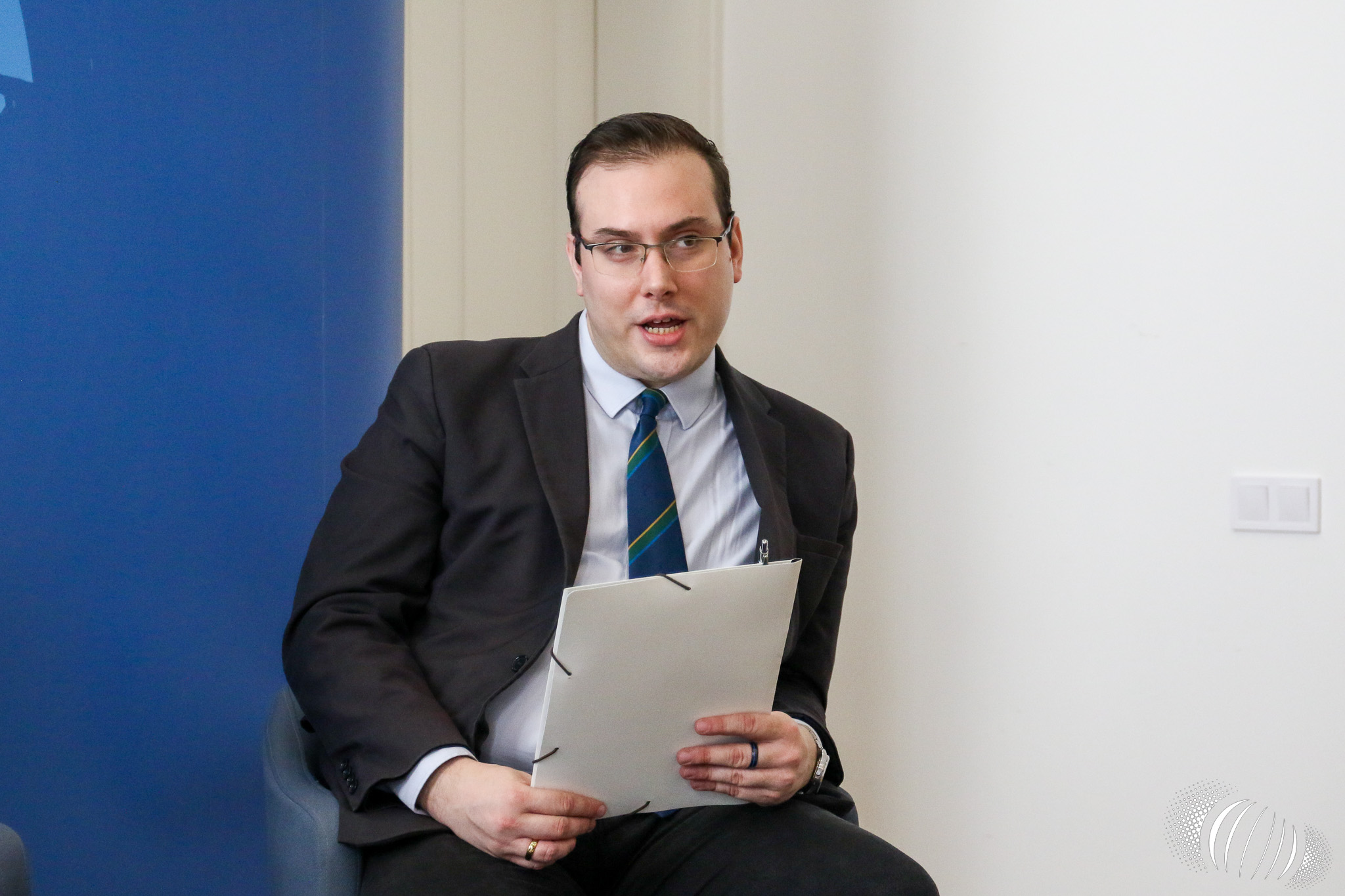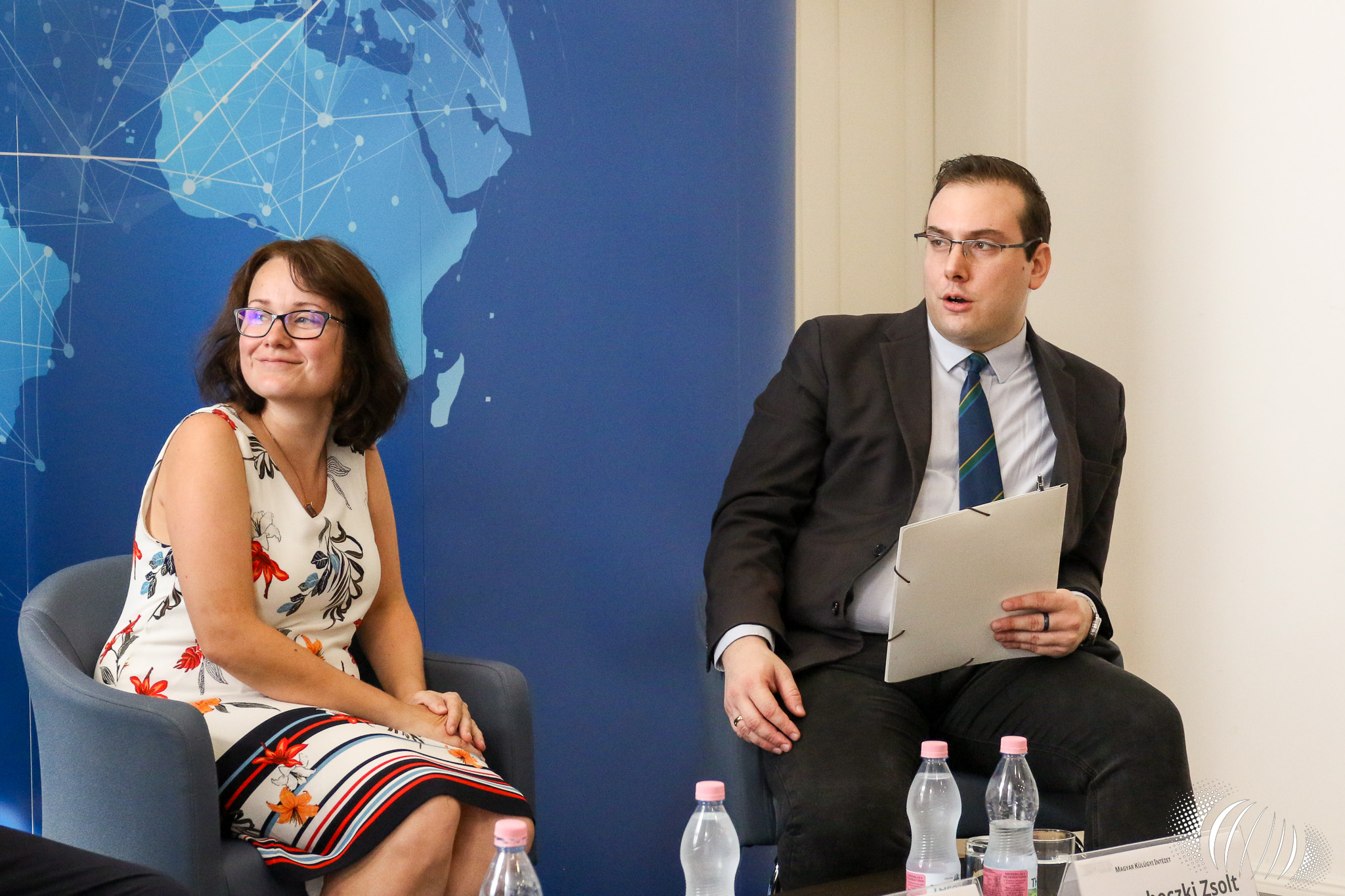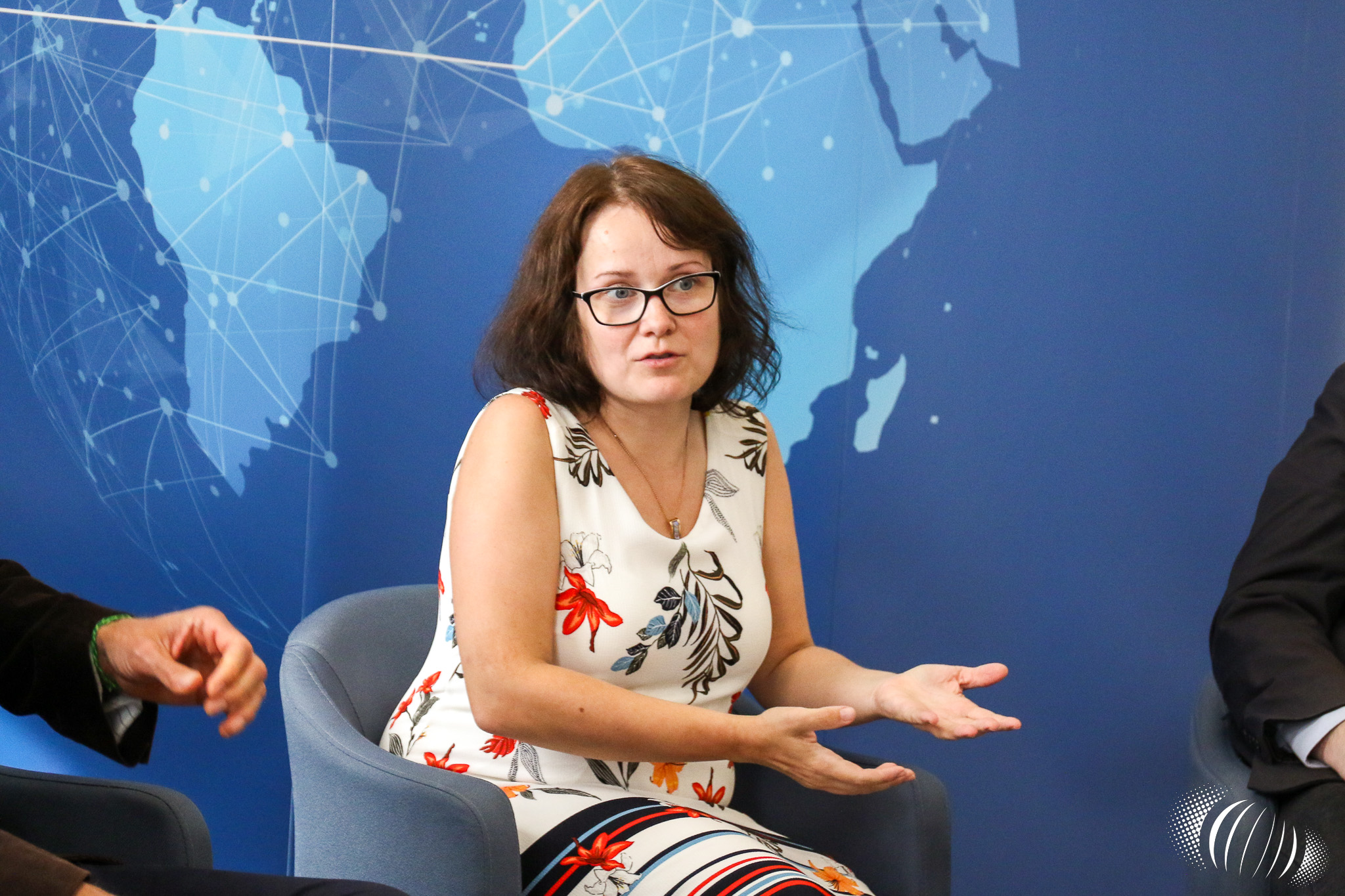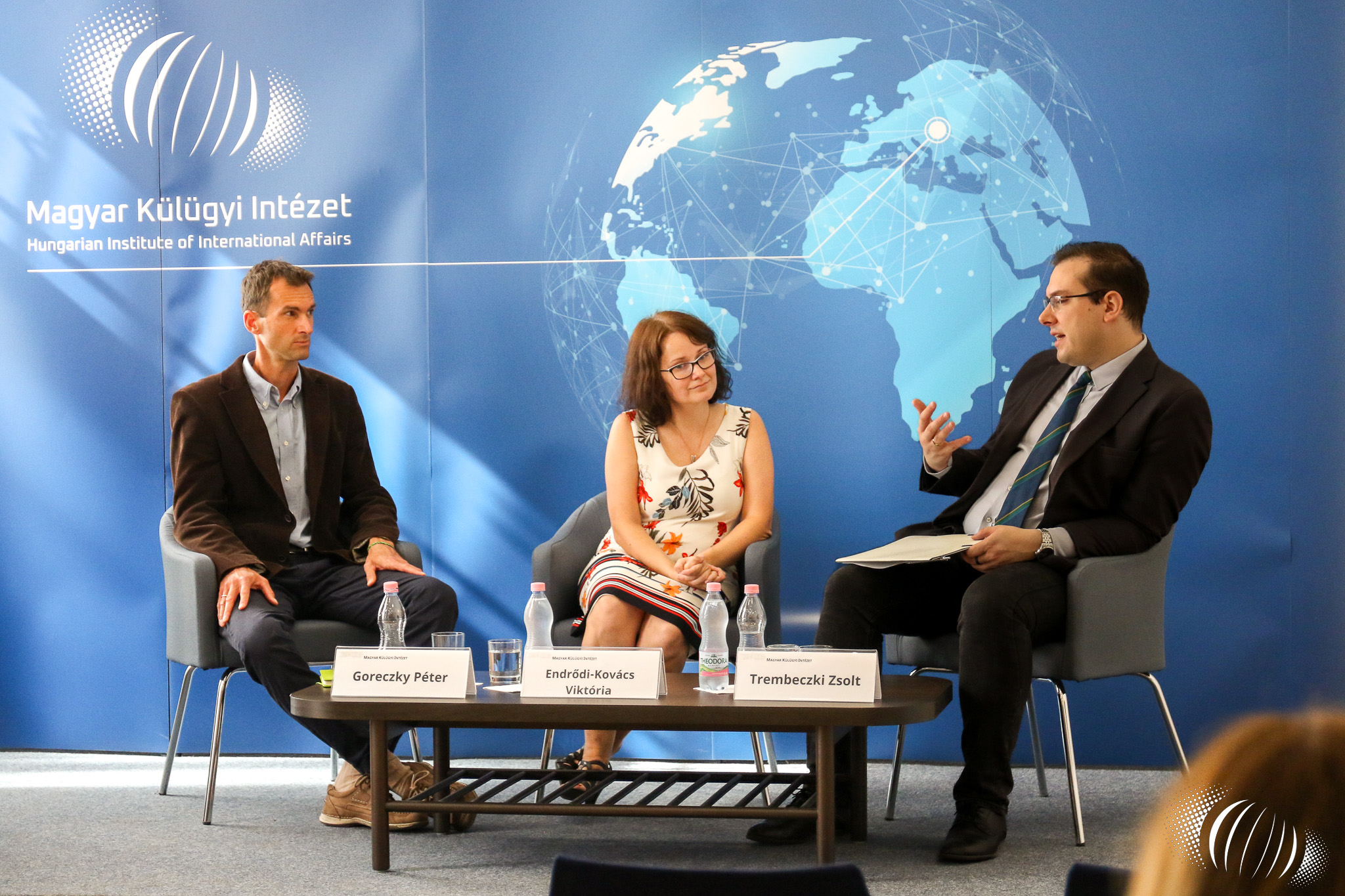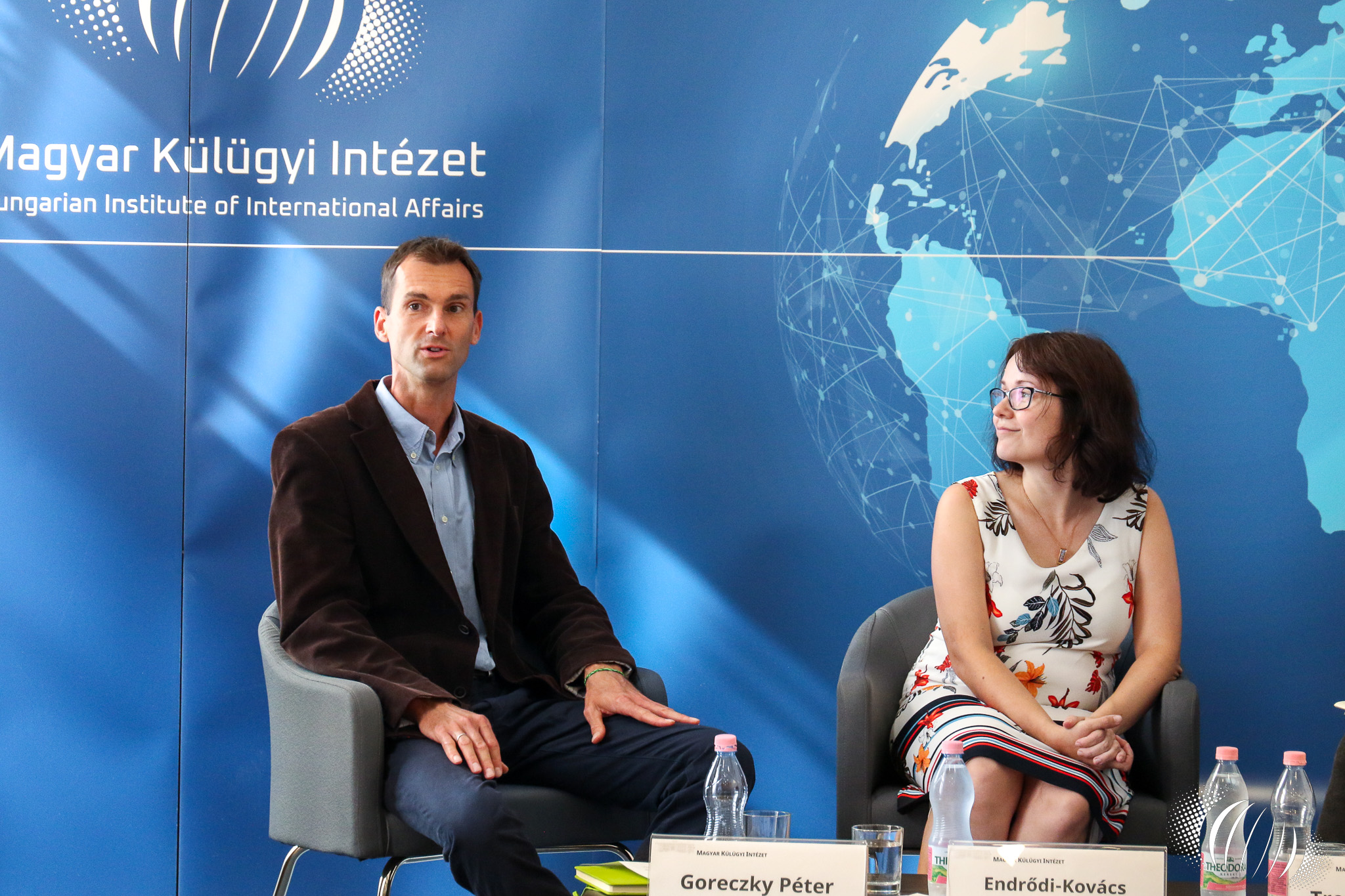FDI in Focus: Foreign Direct Investment in a Changing World
On September 4, 2024, the Hungarian Institute of International Affairs held a roundtable discussion entitled “FDI in Focus: Foreign Direct Investment in a Changing World”, addressing global and domestic experiences and trends related to foreign direct investment (FDI). The discussion featured Viktória Endrődi-Kovács, Associate Professor at the Corvinus University of Budapest, and Péter Goreczky, Senior Analyst of HIIA. The discussion was moderated by Zsolt Trembeczki, Research Fellow of HIIA.
Viktória Endrődi-Kovács emphasized that transnational corporations play a crucial role in the development of national economies, as their investments increase productivity and strengthen export capabilities. The positive impact of FDI can be further enhanced through conscious economic policy.
“Until 2008, global FDI was characterized by steady growth, but the financial crisis interrupted this trend. After the crisis, developing countries became increasingly important FDI destinations, with mass production coming to the forefront as part of corporate rationalization. The mid-2010s marked a turning point, as a larger share of FDI started flowing into developing economies. This process was disrupted by the COVID-19 pandemic, leading to a new era due to supply chain issues caused by the crisis,” the expert pointed out.
She added: “Many transnational corporations operating in Hungary handle the majority of Hungarian exports. As a result, the national economy is heavily dependent on these companies, particularly German firms, whose investments still account for a significant portion of domestic FDI. According to Viktória Endrődi-Kovács, the right investment promotion strategy must prioritize Hungary’s economic interests, aiming to attract technologies and activities that can help the country climb higher on the production value chain. ‘If these foreign players withdraw, it could severely damage the Hungarian economy,’ she emphasized.”
Péter Goreczky also agreed that global FDI had shown continuous growth since the early 1990s, but after the 2008 crisis, it never fully recovered. “We tend to blame the pandemic, the Russia-Ukraine war, and the U.S.-China rivalry, but we’ve been seeing stagnation in global FDI overall since 2010,” he said.
The analyst pointed out that currently, the U.S. is the world’s largest recipient and source of FDI. China’s role is changing before our eyes: for decades, it was a popular investment destination, but for various reasons, its appeal has diminished, resulting in the lowest level of new FDI in 30 years last year. The main beneficiaries of this shift are India and Southeast Asia, with the latter increasingly being considered an investment destination for many multinational companies under the “China+1” strategy.
“The last four to five years have been marked by incredible external turbulence, but the goal of Hungary’s economic development has fundamentally remained the same—helping the country advance in the global value chain. To achieve this, Hungary must make its investment environment attractive to high value-added activities, while keeping a close eye on geopolitical developments,” Goreczky concluded.

